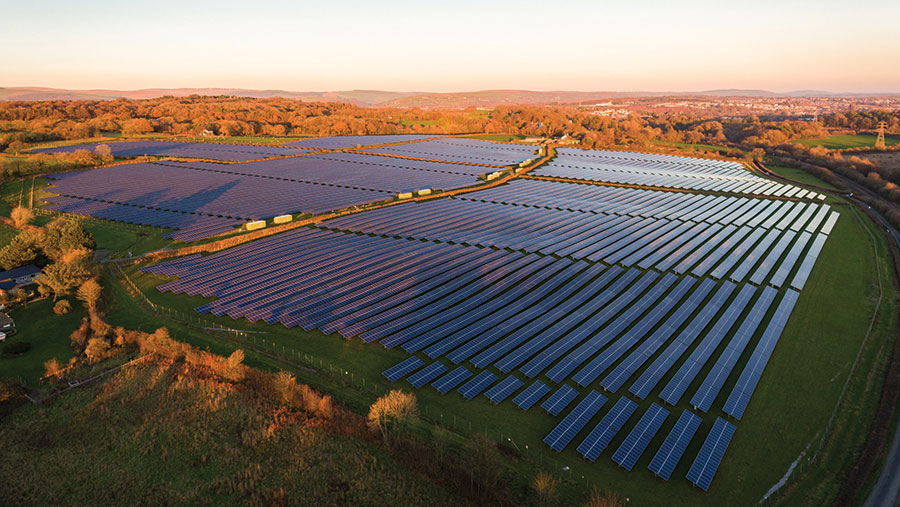Huge solar farm sparks calls for ‘food versus fuel’ debate
 © Adobe Stock
© Adobe Stock Plans to build the UK’s biggest solar farm across a swathe of arable land in East Anglia have reignited calls for a national debate on the future of the countryside.
The Sunnica energy farm would swallow up 1,100ha of productive farmland to create four sites on the Cambridgeshire/Suffolk border.
But opponents say the land should be used to produce food, not energy.
See also: Tenant farmer told to leave for council’s solar farm plans
Much of the land is irrigated, light soil capable of supporting a variety of crops, including potatoes, parsnips, onions and good-quality milling wheat.
Some 24km of cabling would connect the four solar farm sites to the national grid.
Nick Wright, who farms at Badlingham, near Mildenhall, said: “The sheer size of it is community-changing. It will have a massive impact – as an industry we need to ask why this area of quality land should be covered in solar panels?”
Much of the land is Grade 3. Local agronomist Ann Noble said it was particularly valuable free-draining soil that could be cultivated early and late in the year, making it suitable for crops such as early carrots.
Brownfield sites
No-one was against renewable energy, said Dr Noble. But solar panels were better suited to brownfield sites, buildings and rooftops – not agricultural land, which should be used for food production.
If energy was needed, growing maize for anaerobic digestion was more appropriate.
It fitted in with rotations and provided digestate that could be used as a fertiliser, rather than taking land out of production entirely.
Emeritus professor of the rural environment Michael Alder, who is a Fellow of the Royal Agricultural Society, said a national debate was needed on the future of the countryside – including biodiversity and landscape as well as food and fuel.
“Land is finite, and whatever you use it for there are trade-offs.
“Sometimes these trade-offs are acceptable and sometimes they are not.
“I have a particular concern about food security – the Sunnica proposal is for land that is very productive.”
‘Criteria met’
Sunnica’s Luke Murray said the UK faced an urgent challenge to decarbonise its energy supplies.
The site met all the criteria for a project of its type – and the firm had sought to avoid using the best and most versatile agricultural land.
“We recognise that the scheme will use land currently used for farming – albeit temporarily, during which period the land will be fallow and rested.
“It is ultimately the role of the planning system to balance the different needs faced by our country.”
The scheme is classed as a nationally significant infrastructure project.
This means an application has to be made to the planning inspectorate, rather than going through the same process as smaller schemes.
An application is expected to be submitted in the coming weeks.
The planning inspectorate will then have 28 days to review the application and decide whether or not to accept it for examination.
